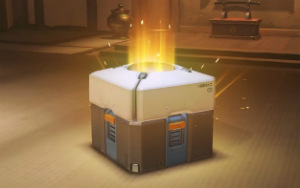
The announcement came shortly after the Netherlands Gaming Authority, Kansspelautoriteit, released a statement saying that it would begin conducting previously announced checks whether certain game developers have adjusted their games in a manner that does not break the country’s gambling laws.
The adjustments required were mainly related to the so-called loot boxes that have been making the headlines since last fall’s release of EA’s Star Wars Battlefront II video game. Generally speaking, loot boxes are in-game purchasable items which, in turn, contain different goods that can either be of great use to a player or of little value. The random selection of items in a loot boxes and the fact that these can be purchased and transferred have unleashed a massive debate, with opponents arguing that the boxes constituted a form of gambling.
Kansspelautoriteit carried out a probe into the matter from November 2017 through April 2018 and released a report to present its findings. The regulator reviewed ten games that were available to Dutch players and featured loot boxes, and stated that four of these were violating Dutch gambling regulations.
Publishers of the four games were not specifically named, but as it can be seen, Valve was one of them. The gambling regulator informed developers that they should make certain adjustments to their games to bring them in line with local regulations until today, June 20, or face punitive measures.
Valve’s Response
The letters went on that if Valve did not make the necessary adjustments by June 20, it would face prosecution in the Netherlands. The game developer argued that it did not receive any additional information in relation to the adjustments that needed to be made and that the explanation provided in Kansspelautoriteit’s report on loot boxes that these breach the law if the goods in them were transferable and did not violate that same law if the goods were not transferable was a “rather simplistic statement”. It also pointed out that it disagreed with Kansspelautoriteit’s findings.
The game developer said in its message from yesterday that the only practical solution for now was to disable trading and transfers of items for Dutch players of its Counter Strike: Global Offensive and Dota 2 games. Valve further noted that it would engage with the gambling regulator to gain more clarity on the matter and hopefully find a less inconvenient solution.
The post Valve Disables Item Trading for Dutch CS:GO and Dota 2 Players as Loot Box Crackdown Looms appeared first on Casino News Daily.

.png)
No comments:
Post a Comment